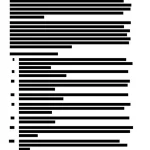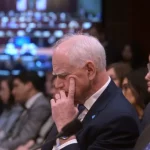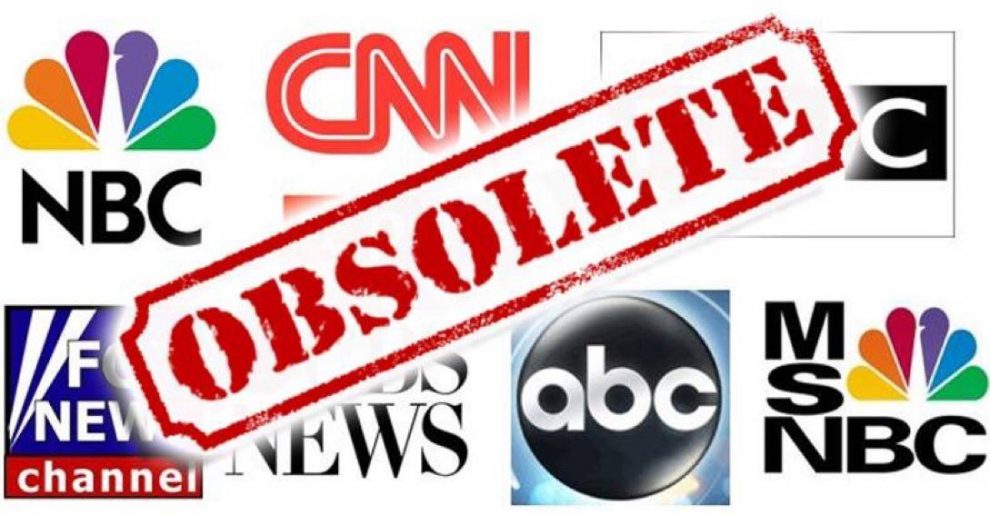Forget the soul-searching. The media counterattack is underway.
With harsh criticism coming from the left as well as the right as Robert Mueller’s probe ends, the leaders of major news organizations, along with assorted pundits, are defending their work and that of their colleagues.
And most of them aren’t giving an inch.
Nope, they’re basically saying we did everything right.
They’re not reflecting on whether they banged the drum so loudly that it sounded like Donald Trump’s presidency was headed toward collapse. They’re not addressing whether they raised expectations for the probe to an absurd degree. They’re not discussing whether reporting bled into commentary as more of its practitioners simultaneously joined the cable news parade.
The New York Times reached several of the news chiefs.
CNN President Jeff Zucker is “entirely comfortable” with the network’s handling of the story:
“We are not investigators. We are journalists, and our role is to report the facts as we know them, which is exactly what we did. A sitting president’s own Justice Department investigated his campaign for collusion with a hostile nation. That’s not enormous because the media says so. That’s enormous because it’s unprecedented.”
Washington Post Executive Editor Marty Baron: “The special counsel investigation documented, as we reported, extensive Russian interference in the 2016 election and widespread deceit on the part of certain advisers to the president about Russian contacts and other matters. Our job is to bring facts to light. Others make determinations about prosecutable criminal offenses.”
‘Third-party’ auditor investigating Minnesota fraud received millions in state Medicaid funds
Macron vows nuclear arsenal boost as Europe turns to nukes amid rising global threats
‘Under siege’: Inside the growing radical Islam threat critics say is hiding in plain sight in deep red Texas
Walz-Ellison administration ‘enabled’ Minnesota’s fraud scandal: Guy Benson
NYC Dept of Education employee arrested, charged with murder of Bronx father
Savannah Guthrie returns to ‘Today’ show studio for first time since mother went missing
Iran widens regional war with first strike into Azerbaijan
5 House Oversight Committee Republicans Join with Democrats to Subpoena Pam Bondi in Epstein Probe
As Jasmine Crockett Concedes Texas Senate Primary, Attention Focuses on Radical Dem Who Beat Her
Tom Emmer calls for Tim Walz, Keith Ellison to ‘serve jail time’ if fraud coverup allegations are true
Republican Rep Burgess Owens to retire from Congress when term ends
VIDEO: College Basketball Ref Knocked Out Cold When Players Turn Violent on Court
DOJ Ends Investigation Into Autopen Scandal With Zero Charges, Grand Juries, or Indictments
The ‘woo-woo’ philosophy of Trump’s surgeon general pick
Illegal’s dragging of ICE agent shows the exact danger the officer who shot Renee Good feared, expert says
And Dean Baquet, the Times’ executive editor: “We wrote a lot about Russia, and I have no regrets. It’s not our job to determine whether or not there was illegality.”
Joe Scarborough offered a high-decibel defense the coverage on his MSNBC show: “Don’t knock reporters for The New York Times, Washington Post, Wall Street Journal, the broadcast networks for doing their job right.” He also took several shots at Fox opinion hosts.
Overall, I think there’s something of a straw-man argument here.
Of course a criminal investigation of the Trump campaign, which yielded 37 indictments, and led to convictions of top former Trump associates, needed to be covered extensively and aggressively.
Of course the fact that Mueller declined to bring further charges doesn’t mean that all the stories written about the allegations and Trump’s handling of them — not to mention his constant attacks on the special counsel — were wrong.
And of course politicians can behave unethically without explicitly violating the law.
So the issue isn’t coverage vs. no coverage. It’s proportionate coverage vs. Defcon 1 coverage, the drumbeat of here’s-the-latest-outrage that could sink the president vs. here-are-the-latest-developments and new questions raised by our reporting.
While “journalists aren’t investigators” in the law-enforcement sense, they routinely submit their investigative work for prizes, and promote it as “a New York Times/Washington Post/CNN investigation has found …”
And that’s without getting into the obliterated line between reporting, analysis and cable punditry in an era when most of the reporters covering the story have TV contracts. And that’s without getting into commentary that portrayed the president as a potential traitor orchestrating a coverup that could lead to impeachment.
‘Third-party’ auditor investigating Minnesota fraud received millions in state Medicaid funds
Macron vows nuclear arsenal boost as Europe turns to nukes amid rising global threats
‘Under siege’: Inside the growing radical Islam threat critics say is hiding in plain sight in deep red Texas
Walz-Ellison administration ‘enabled’ Minnesota’s fraud scandal: Guy Benson
NYC Dept of Education employee arrested, charged with murder of Bronx father
Savannah Guthrie returns to ‘Today’ show studio for first time since mother went missing
Iran widens regional war with first strike into Azerbaijan
5 House Oversight Committee Republicans Join with Democrats to Subpoena Pam Bondi in Epstein Probe
As Jasmine Crockett Concedes Texas Senate Primary, Attention Focuses on Radical Dem Who Beat Her
Tom Emmer calls for Tim Walz, Keith Ellison to ‘serve jail time’ if fraud coverup allegations are true
Republican Rep Burgess Owens to retire from Congress when term ends
VIDEO: College Basketball Ref Knocked Out Cold When Players Turn Violent on Court
DOJ Ends Investigation Into Autopen Scandal With Zero Charges, Grand Juries, or Indictments
The ‘woo-woo’ philosophy of Trump’s surgeon general pick
Illegal’s dragging of ICE agent shows the exact danger the officer who shot Renee Good feared, expert says
By the way, Fox News covered the hell out of this story too, though often in a skeptical vein and with more of a focus on possible wrongdoing within Mueller’s office, the DOJ and the FBI, especially on the opinion side.
But what’s striking to me is how the condemnations are coming from both conservatives and liberals.
Here’s a piece in The Federalist:
“For the past two years, a large swath of the media engaged in a mass act of self-deception and partisan groupthink. Perhaps it was Watergate envy, or bitterness over Donald Trump’s victory, or antagonism towards Republicans in general — or, most likely, a little bit of all the above. But now that Special Counsel Robert Mueller has delivered his report on Russian collusion, it’s clear that political journalists did the bidding of those who wanted to delegitimize and overturn Trump’s election.”
And here’s one from Rolling Stone’s Matt Taibbi:
“Nobody wants to hear this, but news that Special Prosecutor Robert Mueller is headed home without issuing new charges is a death-blow for the reputation of the American news media.”
Glenn Greenwald of the Intercept told Fox that MSNBC “should have their top hosts on primetime, go before the cameras and hang their head in shame, and apologize for lying to people for three straight years …
“There was a whole slew, not just me, of left-wing journalists with very high journalistic credentials far more than anyone on that network, like Matt Taibbi and Jeremy Scahill and many others, including myself who were banned from the network because they wanted their audience not to know that anybody was questioning or expressing skepticism about the lies and the scam they were selling because it was so profitable.”
Alan Dershowitz, the liberal Harvard law professor, sounded a similar note on Fox, saying almost all the pundits “have just been dead wrong. It’s time for them to fess up, it’s time for CNN to issue an apology. CNN banned me from their air because I was being too fair. I was trying to assess what the essential issue was, and I wasn’t being partisan. They didn’t want that.”
Of course, Dershowitz got more Fox invitations once he was regularly defending Trump.
The president isn’t exactly moving on, tweeting yesterday that “the Mainstream Media is under fire and being scorned all over the World as being corrupt and FAKE.” After pushing the “Russian Collusion Delusion,” he said, “They truly are the Enemy of the People and the Real Opposition Party!” That’s the first time he’s broadened the charge beyond just the “fake news,” and in my view goes too far.
But when you have Ted Koppel saying Trump is right that “the establishment press is out to get him” — singling out the Times and Post — and former Times editor Jill Abramson saying its news coverage is “unmistakably anti-Trump,” that ought to give people in the profession some pause.
For its leading members to say they have no regrets misses why much of the country is losing confidence in the media.
Story cited here.
























